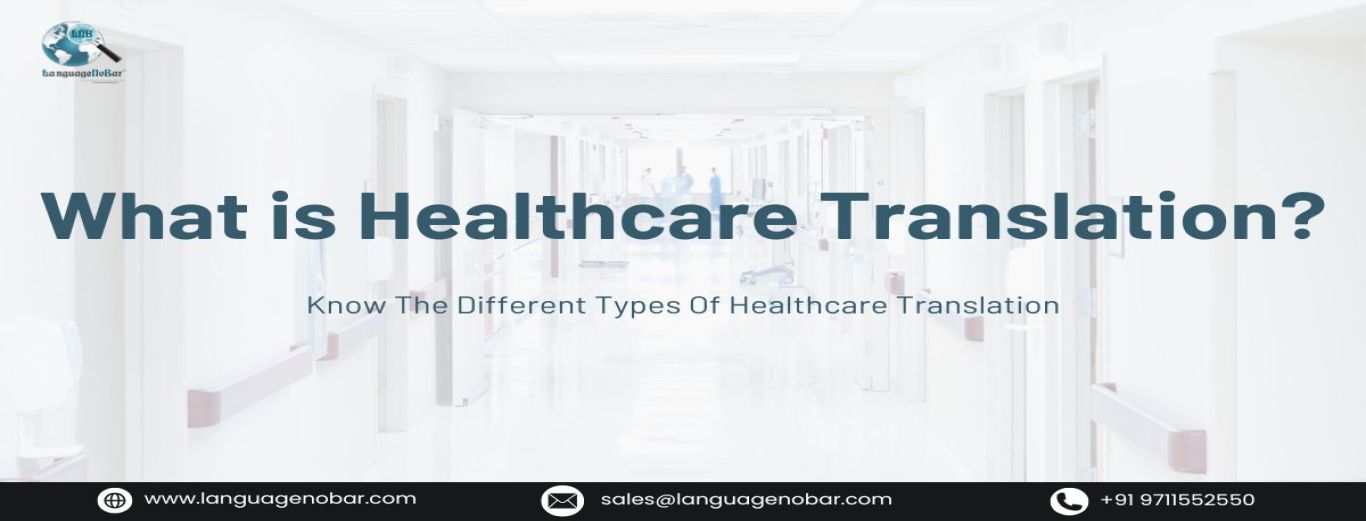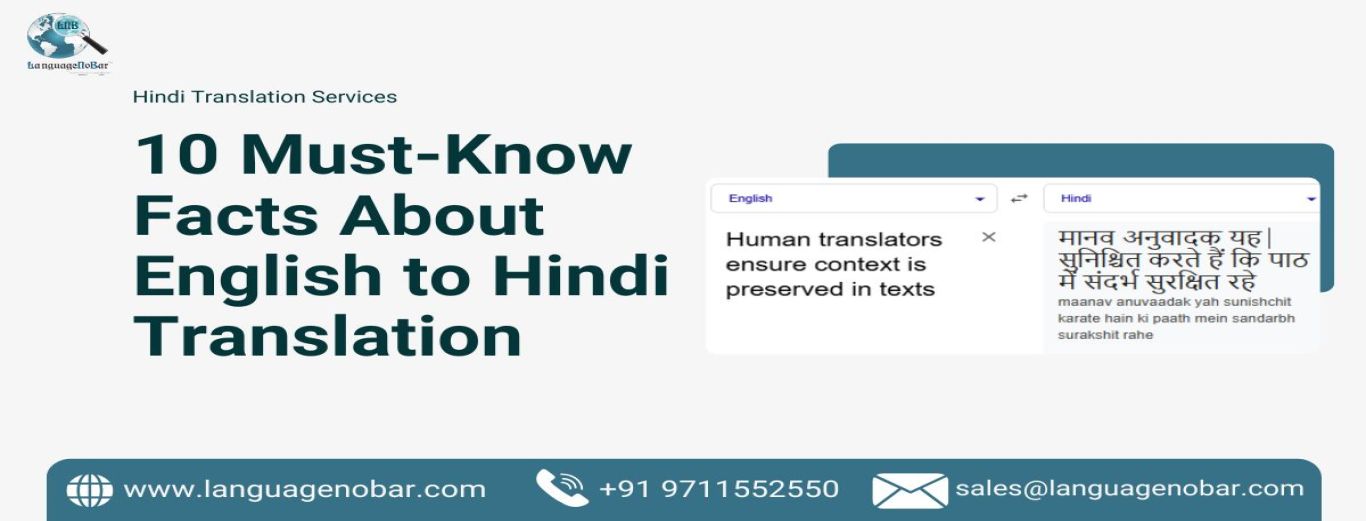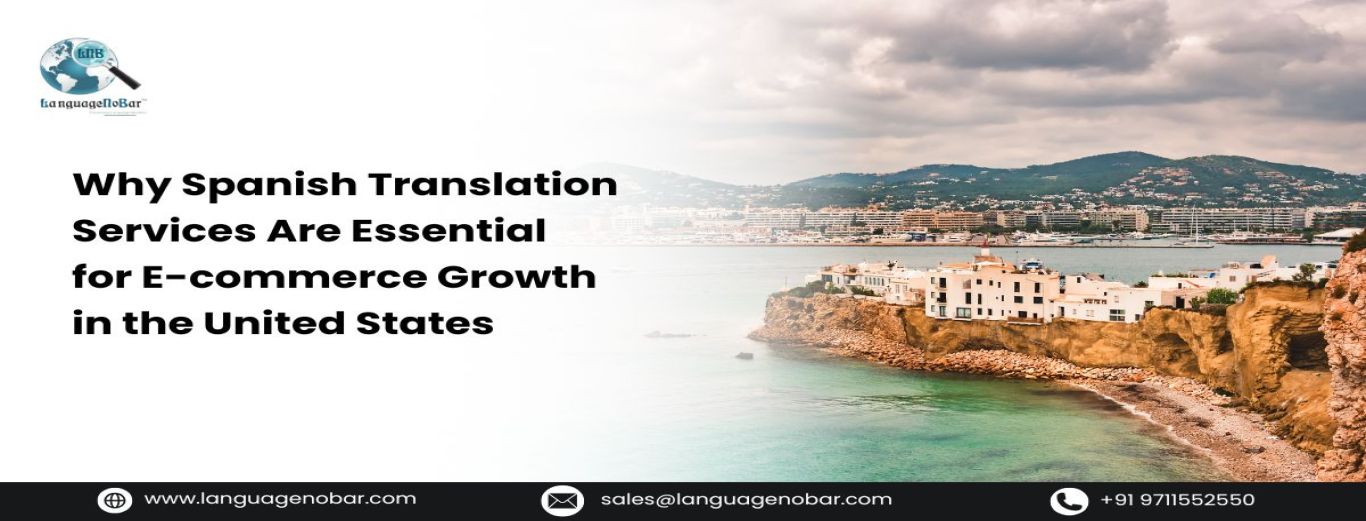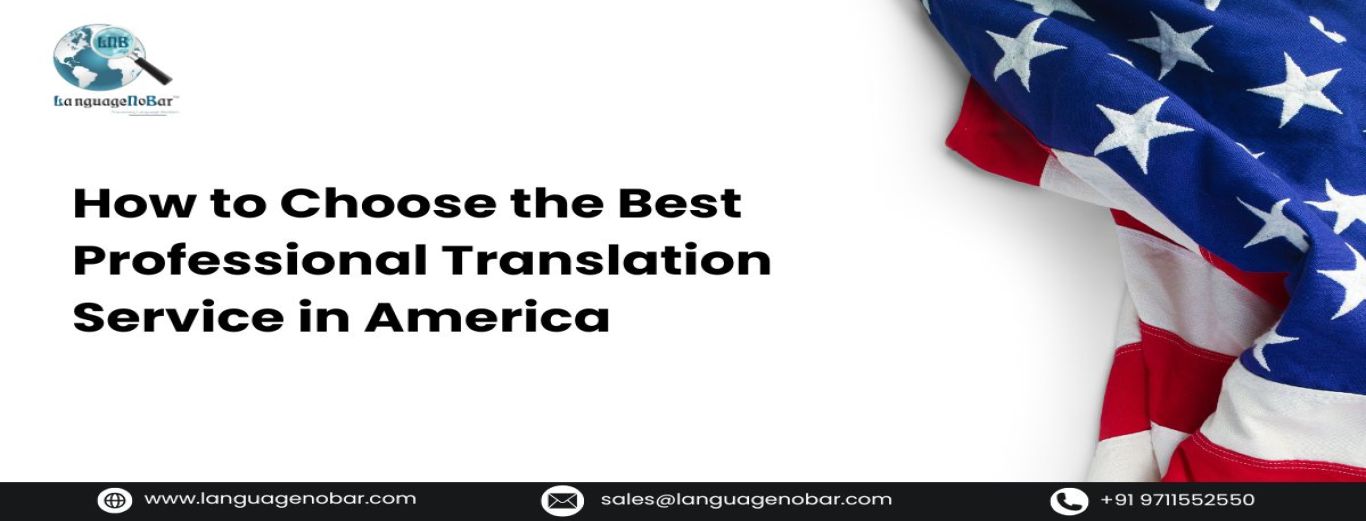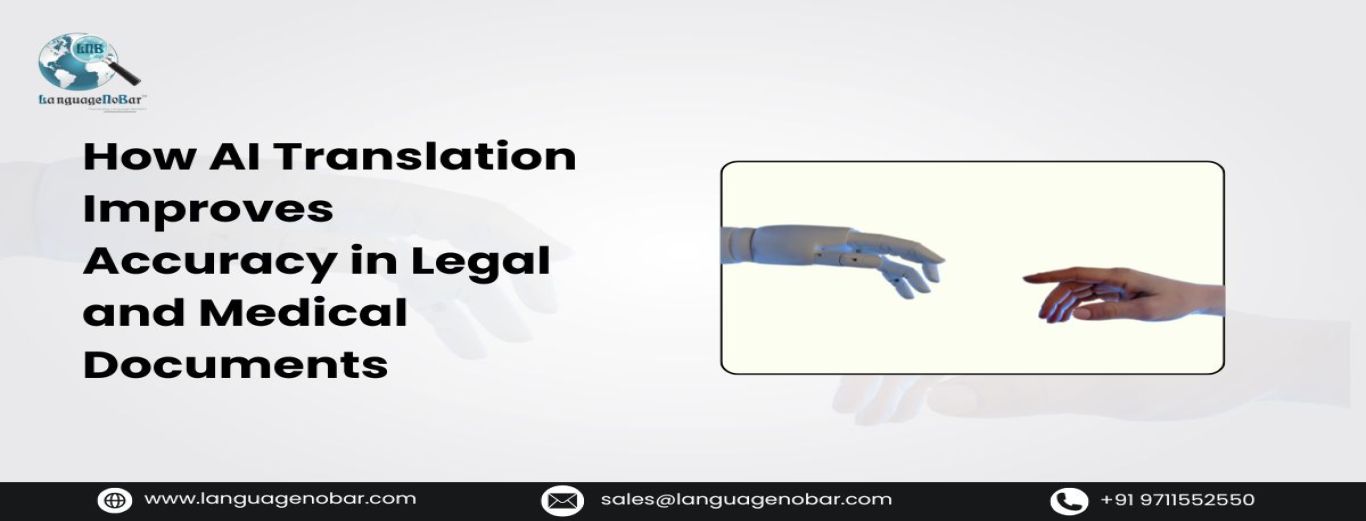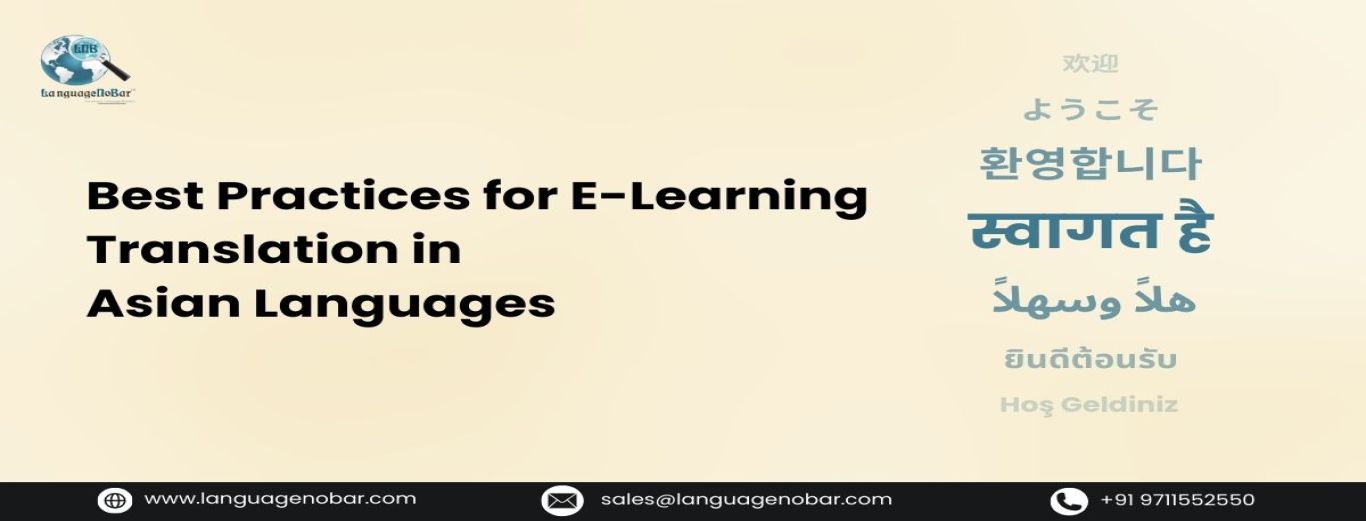What is Healthcare Translation? Know The Different Types Of Healthcare Translation
- Blog
- Comments (0)
What is Healthcare Translation? Know The Different Types Of Healthcare Translation
The healthcare sector is becoming more and more globalized. Be it research or cross-border travel as part of “medical tourism”, healthcare requirements and offerings are now not limited by language. With more migrations, healthcare accessibility in a nation depends heavily upon medical translation services. Healthcare translations are translating medical documents like prescriptions, research documents, patient information pamphlets, consent forms, and other content from one language to another without any loss of information. Since any mistranslation can be fatal, this requires a higher level of accuracy and specialization.
Healthcare translation helps to:
-
Ensure your patient or medical trial participant receives the right information so they consent to any procedures with full knowledge of the situation.
-
Makes healthcare more accessible for people who are literate only in a limited number of languages. In Germany, immigrants and non-german speaking natives are facing a huge accessibility crisis due to medical service being limited to German. Equitable healthcare is one of the main focus of governments and medical translations to all main languages are encouraged.
-
Thanks to technology and the internet, researchers across the globe now collaborate seamlessly to share their expertise. Language translation services enable them to share their learnings and formulate better medical services.
-
Regulatory authorities seek documents in their translation before approving any pharma company to launch a trial or a medical product in their country.
Source: Redokun
What are the types of healthcare translation?
Long-form medical document translation
Long-form medical documents involve medical history, patient notes, discharge summaries, and trial participation forms that collect information from the patient. These can have a large number of challenges as patients fill it, whose ability to disclose vital information accurately will be limited. Medical practitioners take the help of niche translators to understand the content. Discharge summaries provide precise post-treatment information for patients to get a second opinion or continue treatment so there should not be any confusion in the language and the nature of translation should be universal.
Pharmaceutical translation services
Anything that makes a medication more accessible is part of pharma translation. Package information, labels, patient information leaflets, protocols, and information pamphlets become part of pharma translation services. They inform the content, dosage, effects, and side effects of a medicine to pharmacists, retailers, doctors, and patients. The translator needs to have knowledge of the target regions’s regulations such as from FDC, EMA, etc., to understand the protocol and limitations for the documents.
Healthcare marketing services
Healthcare practitioners and pharmaceutical manufacturers create content that increases visibility to make their products widely marketed to patients, caregivers, and doctors. Countries like the United States have leaner regulations on medical/pharmaceutical marketing while Asian nations have more restrictions on visual and document content in marketing. Hospitals and doctors are supplied with brochures, pamphlets, and flyers to advertise products. Online portals, blogs, and websites are huge platforms for medical marketing due to their versatility and global reach. Translation services need to be focused on cultural sensitivities to avoid exaggeration and miscommunication.
Healthcare software and app localization
Healthcare is moving online in hoards, even after all lockdown restrictions have ended. Be it consulting a doctor, understanding details of medication, and first-aid guides, and purchasing medicines and medical devices are facilitated by online platforms and apps. Hospitals across the globe use a wide number of software to manage information systems and facilities. Telemedicine apps like Practo in India and Doctolib in Germany allow doctors and patients to connect virtually to provide medical advice. All these apps need to be localized to improve their user experience, easy adoption, and error-free usage. Advice summaries and data from patients need to be localized so the patient can take follow-up services.
Patient Education Medial translation
Information has become universal through the internet. But on the flip side, one can never know the accuracy of this information. Disease awareness information is made available through print, digital, and audio-visual media. Instructional videos act as visual aids for self-using devices like insulin pumps and glucometers. Videos are also provided for patients to take care of themselves after surgeries or traumas. Many are also limited by language to access the best-in-class information. All of them need to be translated accurately to ensure the patient uses it correctly to extract maximum benefit and avoid any untoward incidents.
Clinical Research and Trial Translations
Consent forms also need to be broken down into low-jargon, easy-to-read content for the layman to understand so they can provide informed consent. This is imperative to not only keep the companies and hospitals out of legal charges but essential to make patients and participants receive full information about anything done to their bodies that can affect their well-being. The details of the trial or procedure, their rights, and any alternative options need to be mentioned carefully. A certified translator with hands-on experience in medical translation is useful to make sure no vital information is lost in the process of translation.
Healthcare translation is often mixed with generic translation, leading to legal and medical complications. The challenges in this sector are plenty - ranging from intense jargons filled with complex medical terms to non-uniformity of documentation. The translators will need to uphold not just high linguistical skills, but ethical standards as well to provide equal respect to medical service providers and beneficiaries.
LanguageNoBar pride in bridging the communication gap in over 250+ languages, working with translators who have niche experience in translating medical documents such as clinical trial documents, patient information leaflets, dossiers, information pamphlets, consultation reports, and operation procedure documentation. The translation services are offered for a variety of media, where efficient minds interpret everything including audio-video content. The agency ensures the utmost privacy to sensitive healthcare data with non-disclosure agreements.

